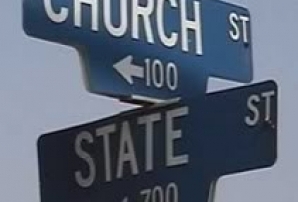Overview
 The same tax rules should apply to all non-profit organizations, whether religious or secular. Because of separation of church and state, government should not provide tax loopholes to religious organizations, or excuse them from the disclosures that non-religious organizations must make.
The same tax rules should apply to all non-profit organizations, whether religious or secular. Because of separation of church and state, government should not provide tax loopholes to religious organizations, or excuse them from the disclosures that non-religious organizations must make.
Our Recommendations on Tax Policy
SECULAR RECOMMENDATIONS ON POLITICAL ENDORSEMENT FROM THE PULPIT
Congress has recently seen proposals that would permit religious organizations to endorse political candidates while receiving 501(c)(3) benefits. IRS rules prohibit partisan politicking by any organization ÔÇô religious or secular ÔÇô that receives tax exemptions under 501(c)(3). Churches, like secular non-profit organizations, have the option of forgoing tax-exempt status if they wish to endorse politicians, but taxpayer money in the form of tax exemptions for 501(c)(3) organizations cannot be used for partisan political activity. Even under current law, Alliance Defending Freedom has asked religious leaders [...]
SECULAR RECOMMENDATIONS ON TAX LOOPHOLES FOR RELIGIOUS ORGANIZATIONS
Total charitable contributions by individuals, foundations, bequests, and corporations reached $298.42 billion in 2011, with religious organizations receiving the largest share ÔÇô thirty-two percent ÔÇô of total estimated contributions. Holding religious organizations to the same filing standards as other charitable and educational institutions ensures that the almost $100 billion being donated to religious organizations is actually going to help those who need it. Yet churches are currently automatically tax-exempt and entitled to the benefits of 501(c)(3) status without applying for advance recognition from the IRS. [...]

